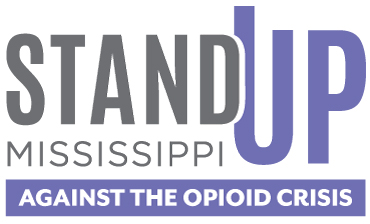
In January 2002 my life changed in an instant. As I dressed and headed out to start my day, it never occurred to me that the next few moments would dictate the next 14 years of my life. That morning I was in a terrible car accident that caused multiple injuries throughout my body. I was taken to my local hospital then later flown to UMC in Jackson because my injuries were extensive and I needed immediate orthopedic care.
I sustained an injury to my entire left leg that required rod placements. Both of my hips were cracked. My right elbow was crushed beyond repair, and doctors held it together the best they could with rods. I was confined to a wheelchair for the first 6 months following the accident, and I was told by my many doctors that I was going to always be in pain. I needed physical therapy to learn to walk correctly again. I remember the doctors prescribing me my first ever set of opioids. They told me it was to help minimize the pain while I was recovering from the accident. The doctor said they were going to help so they had to be ok , right?
The first of many surgical procedures began to the rod stabilizers in my legs and arm. Then the subsequent physical therapy would follow. I was being prescribed pain pills for the pain of physical therapy. That same year I gave birth to a still born. I was prescribed more pain pills because I had a C-section and the doctor felt that my current dose wouldn’t work. I was told by my family doctor to seek pain management to help make my pain more manageable. For years, I hurt constantly and couldn’t figure out why. No matter the dosage of pain medication my doctors prescribed, it was never enough to manage the pain. I began taking an extra one or two more a day than I was prescribed because I thought they were just wearing off quicker than usual or weren’t as strong as others. I told my doctors that I was still in pain, and they usually upped my dosage or gave me a stronger one.
Over all those years, I never once had a doctor warn me of how addictive these medicines were. We didn’t talk about how my quality of life was continuing to decline or that I couldn’t go hours without opioids. The physical dependence on the pills was normal, almost expected. No one tossed around the word “addiction” because I was a chronic pain patient. I complained of pain; they threw more pills at me. My life and my addiction to these substances got out of control so fast. I didn’t even understand the full spectrum of the problem until I had gotten into legal trouble because of my addiction to these powerful drugs. I was physically and mentally addicted to opioids.
All those years I thought I was in pain, but I wasn’t. I didn’t believe that I could be “addicted” because I had legitimate injuries and needed opioids for chronic pain. It wasn’t until I became incarcerated, placed on drug court and had to go without opioids that I began to see that I could in fact make it through day- to- day without pain medication. I then learned about “hyperalgesia”. Hyperalgesia is hypersensitivity to pain caused by opioid use that causes your nervous system to become overly sensitive to pain. Opioids have a way of tricking your brain into thinking that you’re hurting more when you are actually not, causing you to continue to take more and stronger doses. My tolerance wasn’t going up, it was hyperalgesia. It took being forced to stop the medication before I was able to discover this.
I’ve now been in recovery for 1 year, and my quality of life is so much better today. Since I quit taking opioids I do not hurt as bad as I did when I was on them. The stabilizing rods are still in my leg, and I now have a prosthetic elbow. I’m a chronic pain person whose pain is manageable without opioids. I have personally seen this addiction take family and friends way to early. Thanks to God and the 14th Judicial District Drug Court – it didn’t take me.
